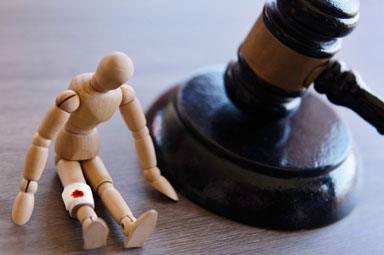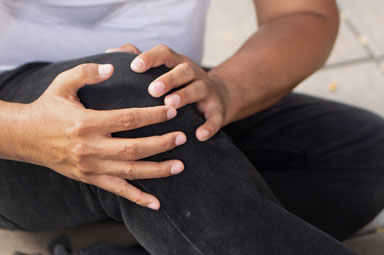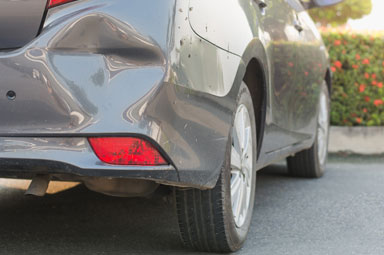
In Georgia, personal injury settlements are typically tax-exempt, which means that most compensation for physical injuries is free from state taxes. However, there are important exceptions to this rule. Are Personal Injury Settlements Taxable? Settlements are generally considered tax-free under certain conditions. Specifically, if they involve compensation for physical harm or sickness, they are typically exempt from taxes. Additionally, the settlement must arise from a traditional tort. This refers to legal cases stemming from unexpected incidents, such as car accidents, slip-and-fall accidents, or other unforeseen injuries. Why Are These Settlements…Read More

When you pursue a personal injury claim in Georgia, a portion of your potential settlement may include compensation specifically for pain and suffering. However, calculating pain and suffering compensation can be complex, as it is not typically tied directly to medical expenses or lost wages. Instead, it often involves subjective factors. As a result, many things can influence the amount you may receive, such as the details of your case, the evidence presented, and the willingness of the involved parties to negotiate. Understanding these aspects of pain and suffering compensation…Read More

Grasping the nuances of personal injury law and identifying what qualifies as a personal injury is essential, particularly when life presents unforeseen challenges. Various situations—ranging from accidents to negligent behavior and intentional misconduct—can inflict harm on individuals, resulting in not only physical injuries but also emotional distress and damage to one’s reputation. While the concepts of personal injury might appear straightforward at first glance, the legal landscape is anything but simple. Many injuries do not meet the criteria for personal injury claims. As a result, understanding these intricacies can significantly…Read More

Gathering evidence is a crucial step after a slip and fall accident, especially when pursuing a personal injury case. This is because the quality and detail of your evidence can significantly impact the success of your compensation claim. As the burden of proof lies with the claimant, compiling compelling evidence to bolster your case is imperative. Every piece of evidence plays a vital role in strengthening your position and can sway the outcome in your favor. Proof There Was a Hazard and Establish Who Was At Fault Obtaining photographs and…Read More

After being involved in an accident and sustaining injuries, individuals may have numerous questions about the legal process involved. This is a common occurrence because most people do not have prior knowledge or experience dealing with personal injury cases until they are directly involved. Unfortunately, this lack of familiarity can result in misconceptions about how injury cases are handled. These misconceptions could potentially lead injury victims to make decisions based on inaccurate information, ultimately jeopardizing their chances of receiving fair compensation. In the guide below, we will answer some of…Read More

Most people never expect to find themselves in a situation requiring legal assistance or suffering from a severe injury. However, accidents and injuries can happen to anyone, including those who are careful and have done nothing wrong. While it is impossible to prepare for these accidents, you can plan how to handle the aftermath. Finding the right legal help following a Georgia personal injury accident is crucial. That is why, in the guide below, we will review some tips you should consider before choosing a personal injury lawyer in Georgia.…Read More

In Georgia, the statute of limitations refers to the specific time period during which an individual must exercise their legal rights, or else they will lose the ability to take legal action. Typically, the statute of limitations in Georgia is two years, but some situations may affect this timeline. In the post below, we will review these timelines in more detail, specifically how they relate to a slip and fall accident, and also explain how an experienced Georgia personal injury attorney can help with this process and ensure you do…Read More

While accidents can occur anywhere, sometimes, they result in more than just a cut or a bruise. Depending on the circumstances, these accidents can lead to severe injuries and costly outcomes. If you have suffered an injury due to the wrongful actions of another, you may have numerous questions and concerns about what you need to do or who you need to call to get the legal help you need. To help you understand these claims, in the below guide, we will review what is considered a personal injury and…Read More

The statute of limitations is a law that sets a time limit for bringing legal proceedings, whether civil or criminal, following an alleged offense. If individuals do not bring their claim within the allotted period, the court can prevent them from seeking compensation and justice. That is why understanding Georgia’s statute of limitations for personal injury claims is critical if you want to pursue legal action after an accident. The Statute of Limitations in Georgia Under the statute of limitations, the time allowed to bring legal action will typically depend…Read More

Hit-and-run crashes refer to situations where a motorist involved in an accident leaves the crash scene and does not fulfill their legal responsibilities. While facing such accidents can be traumatic and infuriating, victims in Georgia have options. In the guide below, we will review the legal recourse you may have if you were injured in a Georgia hit-and-run accident and the steps you can take to help your legal claim. Pursuing Legal Action If you are involved in a hit-and-run accident in Georgia, you have the legal right to take…Read More